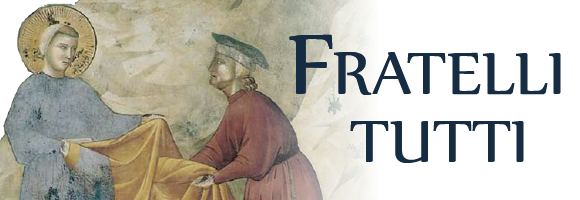During the 51st session of the UN Human Rights Council, the Director of Division of the OHCHR gave an oral update on the current situation in Ukraine during the interactive dialogue under item 10.
International Fellowship of Reconciliation participated in the dialogue in the plenary and addressed the violation of the right to conscientious objection to military service in Ukraine, freedom of movement and the alarming forced conscription in the occupied territory and the recent partial mobilization announced in the Russian federation.
IFOR Main representative to the UN, Zaira Zafarana, delivering the statement during the 51st session of the UN HUman Rights Council.
In its statement, IFOR has also expressed its solidarity to the victims and its support to all war resisters -calling for asylum for conscientious objectors who refuse to engage in the war at their personal risk and those who pursue nonviolent means to peace-building. The speech mentioned civil society peace initiatives to support local nonviolent action such as the Stop The War Now launched by Associazione Papa Giovanni XXIII together with many other Italian NGOs, including MIR Italy - Italian branch of IFOR.
Human Rights Council, 51st Session
4th October 2022
ID Item 4: Oral update of the High Commissioner on Ukraine
Oral statement delivered by the International Fellowship of Reconciliation.
Mr. President,
International Fellowship of Reconciliation thanks the Office of the High Commissioner for the oral update. We stand in solidarity with the people of Ukraine who are suffering for the ongoing war which is causing tragedies and violations and an inhumane nuclear threat.
We stand in solidarity with those who courageously refuse to kill and call on the international community to ensure full legal guarantees of their human right to conscientious objection and to provide them protection and asylum1. The right to conscientious objection to military service should be absolutely protected and cannot be restricted, as highlighted in the last OHCHR quadrennial thematic report [presented at the last session].
We are alarmed by the current suspension of the right to conscientious objection in Ukraine, the consequent detention sentences and the travel ban for all men aged 18-60. We have been informed of repression of students protests against the prohibition to study abroad.
IFOR is also deeply concerned by the forced mobilization in Ukrainian occupied territories and by the new mobilization measures issued by the Russian Federation, which include imprisonment for those who refuse to enlist.
IFOR gives voice to all those who are non-violently resisting war and acknowledge the efforts of the many who support reconciliation and peace building efforts. For instance, Stop The War Now has just concluded its 4th peace caravan to Ukraine, bringing in humanitarian aid and also support to ongoing local civil society peace initiatives.
UN Member States should urgently pursue the way to peace negotiations and facilitate such a path, which is within the United Nations purposes.
Thank you.
Click here to watch IFOR main representative to deliver the statement at the UN Human Rights Council.
International peace initiative to support nonviolent action in Ukraine
#STOPTHEWARNOW is a network of over 175 Italian organizations committed to peace building and international solidarity through non-violent peace and humanitarian actions. The network was created to launch a message of solidarity and opposition to the conflict in Ukraine and to build together an alternative to the madness of war. It is coordinated by a steering committee made up of the Pope John XXIII Community, Pro Civitate Christiana and the national networks Focsiv, Aoi, the Italian Peace and Disarmament Network, Libera against mafias, representing all the member associations. At the moment #STOPTHEWARNOW is in Ukraine with two permanent presences, one in Lviv and one in Odessa.
Between 1 and 3 April #STOPTHEWARNOW organized the 1st Peace Caravan, which set off from Italy with representatives of non-violent and pacifist civil society, to witness, through its presence in Lviv, Ukraine, the will to build a dialogue of peace through non-violent actions.
The 4th Peace Caravan was aimed to:
- Laying the foundations for partnership agreements between Italian members of the campaign #StopTheWarNow and Ukrainian civil society organizations (including trade unions) committed to Peace building, conscientious objection and non-violent resistance; possible youth exchanges with universities and Youth Centers;
- Relaunching the campaign of solidarity with conscientious objectors under investigation/protest by the General Prosecutor's Office in Ukraine, such as the journalist Ruslan Kotsaba, accused of high treason for spreading calls to boycott the war.
Learn more about Stop the war now.
-section under update-
























